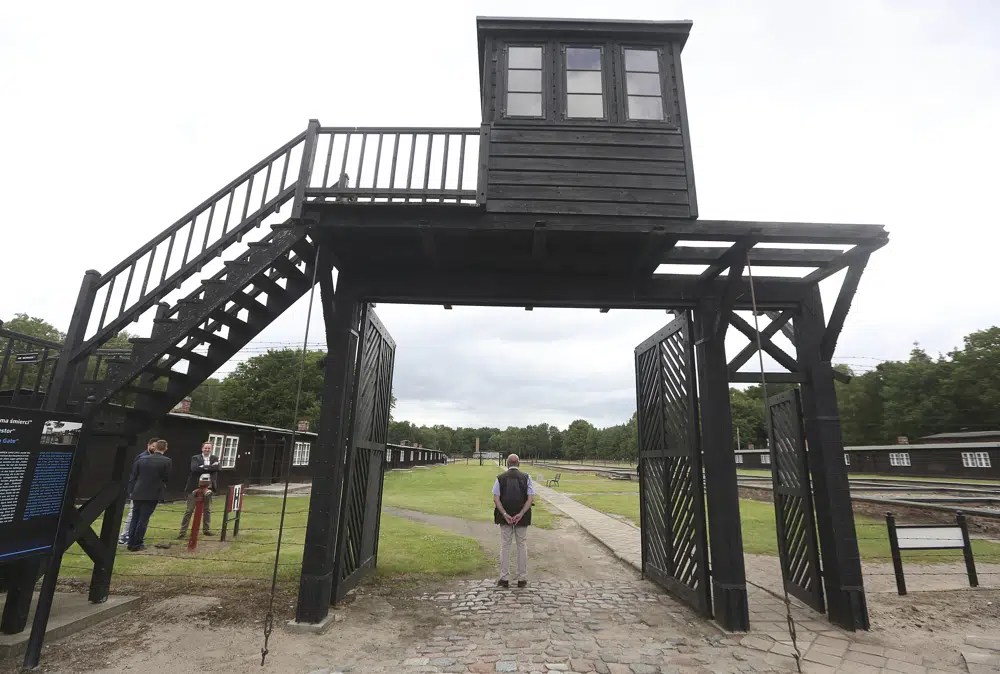A 97-year-old former secretary at a Nazi concentration camp was found guilty of being an accessory to murder in 10,505 deaths during the Second World War.

The German court determined Irmgard Furchner was also an accessory to attempted murder in five additional cases.
On Tuesday, she was handed a two-year suspended sentence.
Furchner worked as a stenographer and typist at the Stutthof camp near Gdansk in Nazi-occupied Poland from 1943 to 1945, CNN reported.
She was 18 and 19 years old during her employment at Stutthof, where she served as the secretary to the camp commandant, Paul-Werner Hoppe, according to The Guardian.
Furchner was tried in a juvenile court because of her age at the time the crimes took place. The judge allowed the courtroom proceedings to be recorded for “historical purposes.”
She was on trial in the northern German town of Itzehoe for over a year. Every court session was only about two hours long due to Furchner’s age.
During the trial, Furchner was usually brought into the courtroom in a wheelchair and was seen wearing dark sunglasses and a face mask. She was often surrounded by doctors.
Furchner is the first civilian woman to be charged with crimes committed in a Nazi concentration camp.
Judge Dominik Gross said in court that Furchner’s trial may be “one of the worldwide last criminal trials related to crimes of the Nazi era.” (However, a special federal prosecutors’ office in Ludwigsburg tasked with investigating Nazi-era war crimes said another five cases are currently pending with prosecutors in various parts of Germany, the German news agency DPA reported.)

Get breaking National news
During her closing statements, Furchner apologized for what happened at the Nazi camp and said she regretted that she had been at Stutthof during the war. Through her lawyer, she did, however, deny being directly guilty of any crimes.
Court judges determined Furchner’s work as a secretary at Stutthof “deliberately supported” the deaths of 10,505 prisoners who were “cruelly killed” in gas chambers, by hostile conditions in the camp, transportation to the Auschwitz death camp and death marches.
A court statement claimed Furchner’s secretarial paperwork tracked the brutality at Stutthof.
“This activity was necessary for the organization of the camp and the execution of the cruel, systematic acts of killing,” the statement reads.
Judge Gross said it was “simply beyond all imagination” that Furchner was unaware of the killings, as per the news agency DPA.
Thirty survivors and family members of those imprisoned at Stutthof provided testimony during the trial.
Josef Salomonovic, who The Guardian reported survived Stutthof, spoke at the trial in December 2021. His father was killed in the Nazi camp.
“She is indirectly guilty, even if she was only sitting in the office,” he said in court as he held up a photo of his father, Erich.
Various historical experts also provided evidence during the trial. They claimed Furchner would have assisted in the bureaucratic processing of prisoners and was therefore aware of the treatment and torture of thousands of prisoners.
In September 2021, just before the start of her trial, Furchner tried to flee. After she failed to make an appearance in court, police later discovered her on the outskirts of Hamburg. She was placed into custody for five days and made to wear an electronic wristband.
Stutthof was initially a collection point for Jewish people and non-Jewish Polish people removed from Danzig (now the Polish city of Gdansk). Stutthof was later used as a so-called “work education camp” where forced labourers, primarily Polish and Soviet citizens, were sent to serve sentences and often died.
From mid-1944, tens of thousands of Jewish people from ghettos in the Baltics and from Auschwitz filled the camp along with thousands of Polish civilians swept up in the brutal Nazi suppression of the Warsaw uprising.
Others incarcerated there included political prisoners, accused criminals, people suspected of homosexual activity and Jehovah’s Witnesses. More than 60,000 people were killed at the camp.
— with files from The Associated Press.













Comments